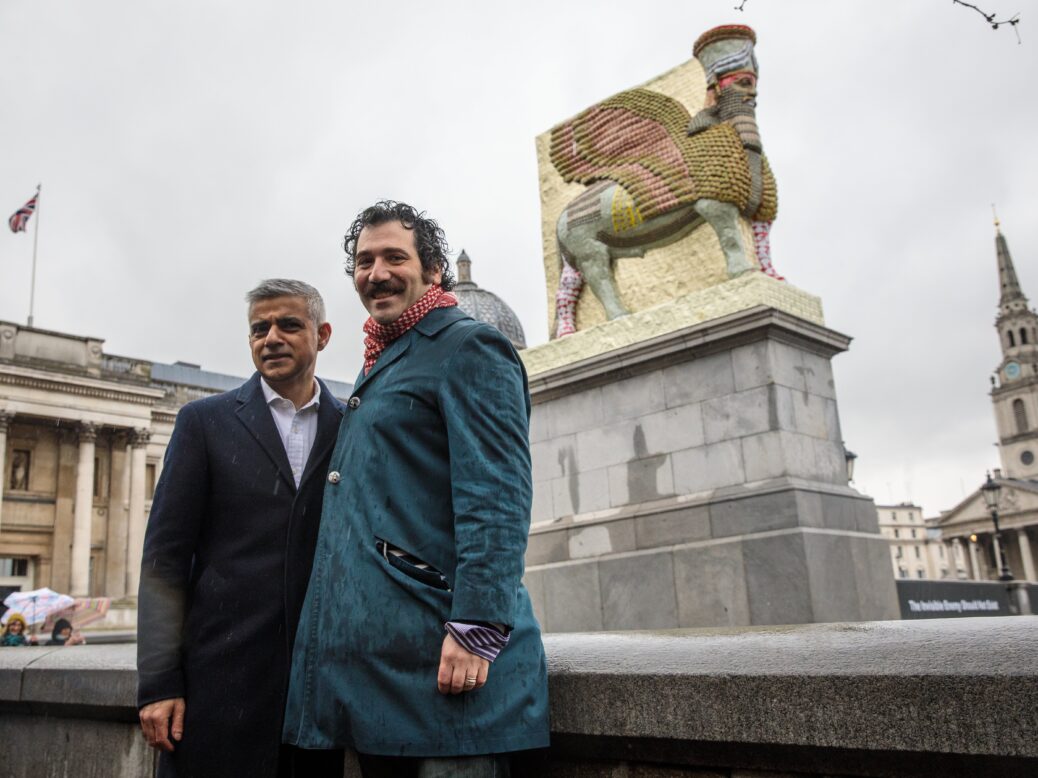
Sadiq Khan announced the creation of six “Creative enterprise zones” across London on Friday to counteract the erosion of the capital’s creative industries by high rents, low pay and lack of opportunity. The zones will aim to protect and keep creative jobs in London by providing training, support, engagement and 40,000 square meters of affordable workspace.
As the cost of living rises in the capital, creative professionals continue to be priced out of the neighbourhoods which they have often helped to regenerate. Coastal towns such as Whitstable and Margate have increasingly become recognised as destinations for disgruntled visual artists, who can no longer afford to rent a studio – or a home – in London.
Creative Enterprise Zones were a central pillar of the Mayor’s 2016 manifesto. The scheme will see zones established in Lambeth, Croydon, Hounslow, Lewisham, Haringey, and Hackney Wick, all of which will receive a share of £11m of funding. Each zone will have a unique focus building on the creative heritage of its area – Croydon, for example, will offer support for local musicians, and a subsidy scheme for under-25s looking for a studio space, covering up to 40 per cent of the rent.
The union which represents professional visual and applied artists, Artists’ Union England, welcomed the initiative, but said that more needed to be done.
“The impact of austerity and cuts has been devastating to arts and culture,” the union’s joint national chair Zita Holbourne told Spotlight. “Many artists experience inadequate, sub-standard studio spaces [and are] forced to take second or third jobs in order to survive.”
Holbourne says the lack of investment has had a particularly adverse effect on young, female and BME artists, and has meant professionals can no longer afford to work with schools and communities. The zones are a step in the right direction, she said, but to establish a truly supportive working environment “the damage of ten years of cuts needs to be reversed and initiatives such as this need to be available across boroughs, cities and regions”.
At the launch of Creative Enterprise Zones in Lambeth Town Hall last week, Khan admitted that it can be “difficult for artists and creative businesses to stay in an area as it develops, and that’s why it’s so important we give the industry the support it needs”.
Deputy Mayor for Culture and Creative Industries Justine Simons said that the zones would disrupt the negative cycle of artists being pushed out of neighbourhoods that “they have helped to revitalise” by delivering “good, socially inclusive growth – with permanent, affordable production and workspace for artists and entrepreneurs, new jobs, skills and training for the local community.”
The £11m in funding comes from the Mayor’s culture budget, his Good Growth Fund and the European Social Fund. Some will question how much can be done to support creative industries in London with that amount of money; by comparison the government agency Innovate UK invests around £250m each year in UK businesses.
According to research by the Arts Council, the arts and culture industry contributes £8.5bn to the UK economy – more than twice the value of the Premier League. Louise Riley, an artist who left London two years ago after being “slowly squeezed out”, said that she was glad the initiative is happening, but for her it was unfortunately a case of “too little too late”.



